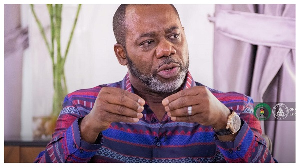Takoradi, Nov. 1, GNA - Mr. Anthony Evans Amoah, Western Regional Minister, on Friday urged exporters and the business community to obtain Barcode identification.
He explained that Barcode technology was an automatic data collection system that enabled information to be conveyed and entered into computer systems without typing it. Mr Amoah made the call in an address read for him at the launch of Barcode usage, at a one-day regional workshop on the technology, organized by the Ministry of Trade, Industries and Presidential Special Initiatives (PSI) and the Global Standard 1 (GS1), at Takoradi. He said the technology was a quick and effective way of keeping information and identifying a product, a person or an object, which had become necessary for easier exchange of accurate information on the global market.
Mr. Amoah said unlike labeling, Barcode could be used by supermarkets and retail trade entities for stock taking and for planning purchasing schedules, assuring buyers and sellers of the availability of goods and services at all times. He said the use of Barcode as a packaging tool, was becoming important to developing economies and Ghana must not be left out of the race.
Mr. Amoah urged developing countries, including Ghana to integrate into the international economy by producing and selling goods in accordance with global standards. He said "Unfortunately, we in Ghana neglect do not apply Barcode technology in international trade and we do this at our peril since it may result in the marginalization of our performance in the global market". Mr. Charles Folikumah, Regional Trade and Industry Officer, said the workshop was an important aspect of the Trade Sector Support Programme of the Ministry.
He said the Ministry was committed to developing a vibrant technology-driven competitive trade and industrial sector that would contribute significantly to employment creation and economic growth, particularly for rural communities and other vulnerable groups. Mr Folikumah said this would lead to diversification and structural transformation of the Ghanaian economy. He said to realize this agenda, required the full cooperation and participation of all stakeholders including business community, industrialists, trade associations, professionals and civic society. Mr Folikumah said government would continue to introduce various interventions to create the right environment for the transformation of trade and industry.
Business News of Saturday, 1 November 2008
Source: GNA
















